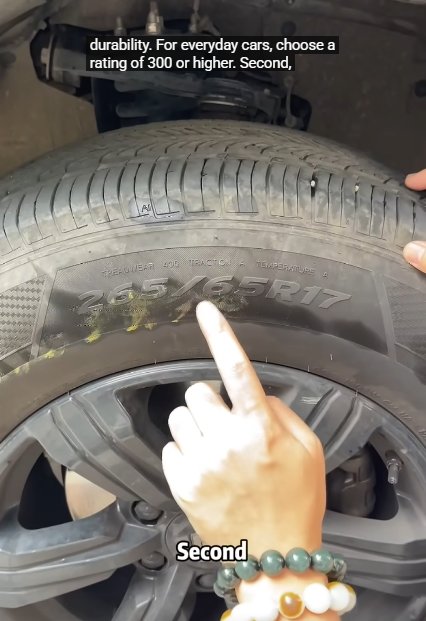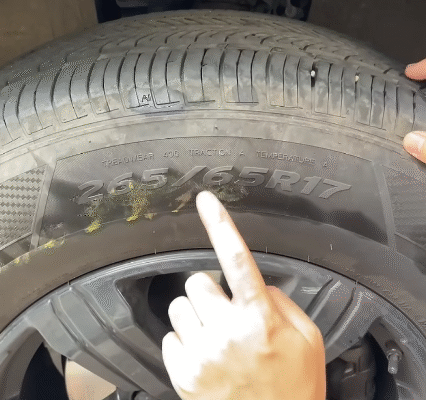
Car tires are one of the most critical components of any vehicle, directly impacting safety, comfort, and fuel efficiency. However, buying high-quality tires doesn’t always mean you have to spend a fortune. With the right strategy, research, and timing, you can score top-tier tires at affordable prices. This guide will walk you through essential tips and techniques for buying high-quality car tires at a low cost without compromising safety or performance.
1. Understand Your Tire Needs First
Before you even start shopping, understand what type of tires your vehicle needs. This includes:
- Tire size (Check your car manual or tire sidewall for specs like 205/55R16)
- Driving conditions (City, off-road, highway, winter, rainy)
- Performance requirements (Speed, load capacity, durability)
Knowing your specific needs prevents you from overspending on unnecessary features or buying the wrong tire type.
2. Set a Budget Range
Setting a realistic budget helps narrow down your options. While you want to save money, remember that extremely cheap tires may not offer the safety or lifespan of quality brands. The goal is value for money — not just the lowest price.

3. Compare Prices Online
One of the best ways to find deals is by comparing prices across different online platforms. Sites like Tire Rack, Discount Tire Direct, SimpleTire, and even Amazon offer a wide range of tire options. Use filters to sort by:
- Price
- Customer reviews
- Brand
- Performance ratings
You can often find promotions, cashback offers, or free shipping deals that reduce the total cost significantly.
4. Look for Manufacturer Rebates
Many top tire brands offer seasonal rebates and promotions. Companies like Michelin, Goodyear, Bridgestone, and Continental frequently provide mail-in or instant rebates that can save you $50 to $150 or more on a full set of tires.
Check the brand’s official website or ask at the tire store to see if any current rebates are available.
5. Consider Buying Tires During Sale Seasons
Timing matters. Tire retailers often offer discounts during certain times of the year, such as:
- End of winter and summer
- Black Friday and Cyber Monday
- Memorial Day, Labor Day, and Independence Day
- New model year clearance events
Buying during these sale periods can save you a significant amount on high-quality brands.
6. Don’t Overlook Used or Refurbished Tires
If you’re really tight on budget but still want good quality, used or refurbished tires can be an option. Look for:
- Gently used tires with at least 70–80% tread remaining
- No visible damage, sidewall cracks, or punctures
- Verified sellers or shops that offer limited warranties
Websites like eBay Motors or local tire shops may offer certified used tires at deeply discounted prices.

7. Buy Locally — Then Ask for a Price Match
Sometimes local tire stores will match or even beat the online price if you show them a competitor’s offer. Local shops also often include extras like:
- Free mounting and balancing
- Tire rotation services
- Flat repair guarantees
This makes them a great option for long-term savings, even if the initial price is slightly higher.
8. Choose Lesser-Known but Reliable Brands
Big names like Michelin and Pirelli are fantastic, but lesser-known tire brands can offer similar quality at a lower cost. Brands like Kumho, Nexen, Hankook, and General Tire often receive high ratings for safety and durability but are more affordable than premium-tier names.
Always read user reviews and expert opinions to ensure the brand you choose meets safety and quality standards.
9. Buy in Sets
Buying tires in a set of four often unlocks bulk purchase discounts or special promotional offers. In addition, having all four tires from the same make and model improves vehicle handling, traction, and balance.
Ask the retailer if there’s a deal for purchasing a full set and whether it includes services like installation or alignment.

10. Use Credit Card or Membership Benefits
Some credit cards offer cashback or extended warranties on automotive purchases. Others provide access to special deals when buying through partner retailers.
Also, warehouse clubs like Costco and Sam’s Club often include free lifetime balancing, rotation, and inflation checks in the tire purchase price — making their deals excellent long-term value options.
11. Check Local Dealerships and Auto Repair Shops
You’d be surprised — car dealerships and small auto repair shops often have stockpiles of tires they’re looking to clear out. These tires may be new but outdated models or overstock items sold at reduced prices.
Call around to local garages and dealerships, especially toward the end of the month or quarter when they’re trying to meet sales targets.
12. Ask About Warranties and Return Policies
Don’t forget to factor in warranties and return options. A slightly more expensive tire that comes with a 70,000-mile warranty and a 30-day satisfaction guarantee may be a better long-term investment than a cheaper tire with no coverage.
Be sure to understand:
- Treadwear warranties
- Road hazard protection
- Trial periods
These can save you money on future replacements.

13. Avoid Unnecessary Add-Ons
Some retailers will try to upsell you on additional services like nitrogen inflation, extended warranties, or premium balancing. While some add-ons can be useful, others are overpriced and unnecessary for everyday drivers.
Stay focused on your budget and stick to services you truly need.
14. Check for Online Coupons and Promo Codes
Before you check out online, search for promo codes or coupons. Sites like RetailMeNot, Honey, or Coupons.com may have discounts you can apply to reduce your total.
Also, subscribing to a retailer’s newsletter might get you an instant coupon code or early access to a sale.
15. Inspect the Tire’s DOT Code
Even if you find a tire at a great price, make sure it’s not too old. The DOT code on the tire’s sidewall includes a four-digit number indicating the week and year it was manufactured (e.g., “2319” means the 23rd week of 2019). Avoid tires older than 5–6 years, as the rubber may begin to degrade regardless of use.
Conclusion
Buying high-quality car tires at a low price is entirely possible with a little research, patience, and smart shopping. Know your vehicle’s needs, compare options, and leverage promotions, rebates, and seasonal discounts. Whether buying online or in-store, always prioritize safety and value over the lowest sticker price. By following these steps, you can drive away on reliable, durable tires — without breaking the bank.



